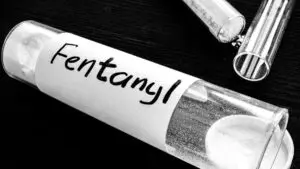Depression also referred to as major depressive disorder, is a common and serious mental health condition that negatively affects many Americans. One feels sad, anxious and loses interest in activities that they once enjoyed. It can drastically reduce one’s ability to function at home and also at work due to physical and emotional problems caused.
Some people resort to harmful coping mechanisms by abusing substances which include alcohol, tobacco, marijuana, heroin, cocaine and even prescription medication. Unfortunately, what begins as a seemingly harmless recreation leads to serious repercussions that negatively impact on the individual, family, friends and the society at large. People living with substance abuse disorders must not be treated as social outcasts. Instead, the root cause of their behavior – depression- must be addressed.
How to recognize people living with substance abuse disorders
There are several behavioral and physical symptoms that may raise red flags, indicating that one may be abusing substances. One may suddenly or uncharacteristically:
- Become careless about personal hygiene and grooming
- Withdraw from family members and friends
- Have mood swings, sometimes violent
- Change behavior and act irrationally
- Lose interest in sports or other favorite activities
These and other symptoms are warning signs that all may not be well. Once noticed, it’s advisable to take the affected individual for counselling to address the root causes. Fortunately, depression is very treatable. Research shows that 80% – 90% of those diagnosed with depression gain relief from their symptoms and respond well to treatment. Usually, the person with a substance abuse disorder should undergo a thorough physical examination and diagnostic valuation. The next step is to plan a course of action based on the diagnosis. Several treatment options the professional may recommend include:
- Psychotherapy
- Medication, including administration of antidepressants
- Exercise
- Brain Stimulation therapy
- Alternative approaches like faith-based healing, acupuncture and nutrition
Can a person living with substance abuse disorder suddenly quit?
In very rare instances, one can stop abusing substances are abrupt as they began them. However, ‘cold turkey’ detox poses high risks to the individual. There may be severe withdrawal symptoms to contend with, some that could be life-threatening. It is essential that substance detox is done under the close supervision of a professional health provider to avoid the danger of relapse. Substance abuse recovery is more than a detox. It is a gradual readjustment towards a healthier and balanced life. Contact us today for more information or support.



